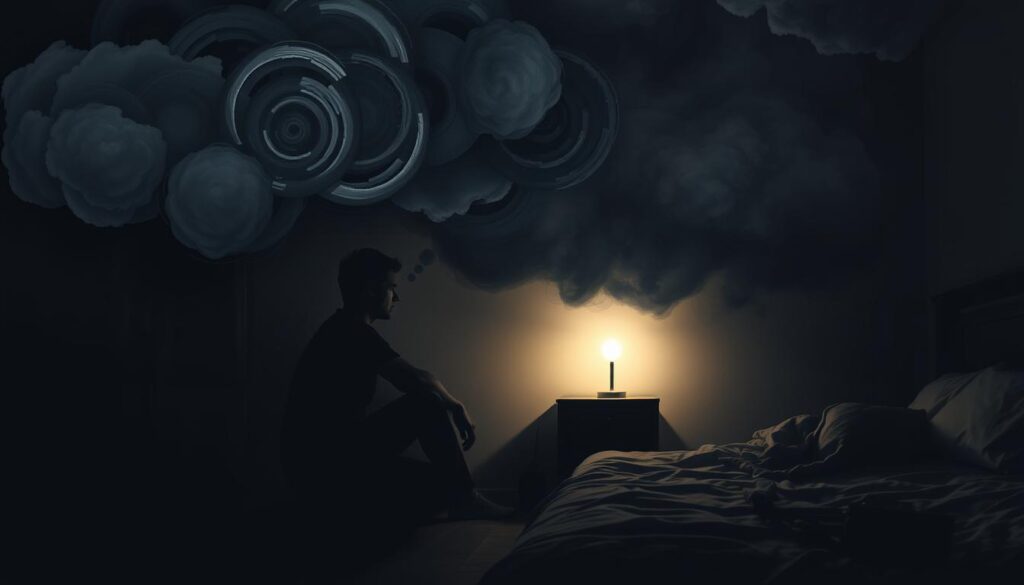When you’re feeling really upset or in a mental health crisis, know that help is out there. Pennsylvania has a special law called the Mental Health Procedures Act (MHPA). It helps people who are really struggling with their mental health.
This law lets experts do emergency checks and even help someone get treatment without their say-so. It’s all about keeping people safe and making sure they get the help they need.
The Philadelphia Crisis Line (PCL) is here for you 24/7. You can call them at 988 or 215-685-6440. They have trained helpers ready to talk and help you find the right care.
Getting help without your permission is a big deal. It’s only done when someone is in real danger. But, it’s always the last thing they try. The MHPA makes sure this is done carefully, keeping everyone’s rights in mind.
Key Takeaways
- The Mental Health Procedures Act (MHPA) in Pennsylvania outlines the process for emergency psychiatric evaluations and involuntary commitments, known as a “302” process.
- The Philadelphia Crisis Line (PCL) offers 24/7 assistance at 988 or 215-685-6440 for mental health emergencies, connecting individuals with trained professionals.
- Involuntary commitment is a serious measure, but it is sometimes necessary when an individual’s mental illness poses a significant threat to their own safety or the safety of others.
- The MHPA is designed to protect the rights and well-being of the individual, with involuntary commitment being a last resort option.
- Seeking support and understanding your rights are crucial during a mental health crisis to ensure you receive the care and assistance you need.
Understanding Mental Health Crisis Intervention
When facing a mental health crisis, it’s crucial to recognize the warning signs. This ensures your safety and well-being. Crisis intervention is a coordinated response to urgent mental health concerns. This includes depression, anxiety, and other emotional distress.
Recognizing Crisis Warning Signs
Be aware of these warning signs for a mental health crisis:
- Thoughts of harming yourself or others
- Sudden changes in mood or behavior
- Difficulty functioning in daily life
- Feelings of hopelessness or despair
Initial Response Steps
If you or someone you know is in a mental health crisis, take these steps:
- Call a crisis hotline or emergency services for immediate help.
- Remain calm and provide a safe, supportive environment.
- Encourage the individual to seek professional help, like a therapist or counselor.
Emergency Resources Available
In Pennsylvania, the Philadelphia Department of Behavioral Health and Intellectual disAbility Services (DBHIDS) offers guidance on emergency evaluation and treatment. Mental Health Delegates are available 24/7 to help during a mental health crisis.
Remember, the concept of Least Restrictive Alternative is key in Pennsylvania mental health law. It shows that people thrive in environments with minimal restrictions on their freedoms.
“The first step in crisis intervention is to recognize the warning signs and respond promptly to ensure the safety and well-being of those in need.”
The Mental Health Procedures Act Explained
The Mental Health Procedures Act (MHPA) is a law in Pennsylvania. It sets rules for treating mental health issues. It makes sure people get the care they need while protecting their rights.
The MHPA tries to use voluntary treatment first. It talks about different ways to commit someone, like by choice or when it’s an emergency. It says to only use force when it’s really needed.
Every county in Pennsylvania has to follow the MHPA. This means things might be a bit different in each place. It’s important for people and their families to know their rights and what help is out there.
Key Provisions of the Mental Health Procedures Act
- Voluntary Commitment: People 14 and older can choose to go to inpatient treatment under Section 201 of the MHPA.
- Involuntary Evaluation: Section 302 lets someone be checked if they might hurt themselves or others. This is based on what they did in the last 30 days.
- Involuntary Hospitalization: Someone can be put in the hospital if they can’t take care of themselves or might hurt someone. This includes if they try to kill themselves.
- Commitment Duration: Being held under Section 302 can last up to 120 hours. It can be extended up to 20 days under Section 303. And then up to 180 days under Section 305 for more treatment.
- Non-Compliance and Outpatient Treatment: If someone doesn’t follow their outpatient treatment plan, they might have a hearing. This is to see if they need more help.
The MHPA is all about protecting people with mental health issues. It makes sure they get the right care and support. It also tries to make sure they are treated fairly and with respect.
What is a Mental Health 302?
In Pennsylvania, a Mental Health 302 is an emergency check-up for the mind. It can last up to 120 hours. It helps people in crisis who might hurt themselves or others.
Emergency Evaluation Process
The 302 starts with a call to the Philadelphia Crisis Line. They look at the person’s actions from the last 30 days. Then, a Mental Health Delegate decides if an emergency check-up is needed.
The person goes to a special place for a full check-up. A mental health expert will assess them.
Legal Rights and Protections
During the 302, the person’s rights are very important. They can appeal at every step. The place they are at must follow rules to protect their rights.
Duration and Timeline
If someone is seen as a danger, they can be kept for up to 120 hours. The team tries to make them stable. They also figure out if more help is needed.
The emergency psychiatric evaluation and involuntary commitment under a Mental Health 302 help in crisis. They protect the legal rights of those in need.
“The 302 process is a critical safety net for those in urgent need of mental health support, ensuring they receive the care and treatment they require during a time of crisis.”
Types of Mental Health Commitments
Pennsylvania law has different types of mental health commitments. These range from voluntary admission to extended involuntary treatments. They help people get the care they need for their mental health.
Voluntary Admission (201)
The voluntary admission process lets people choose to get help. It’s a way for them to be part of their own recovery. They work with their healthcare team to get better.
Extended Involuntary Commitments
Pennsylvania also has extended involuntary commitments. These can last up to 20, 90, or 180 days. Before these, there are hearings to make sure the care is right for the person.
| Commitment Type | Duration | Approval Process |
|---|---|---|
| Voluntary Admission (201) | Determined by the individual | Voluntary admission, no formal approval required |
| Extended Involuntary Commitment (303) | Up to 20 days | Hearing and approval from mental health review officer |
| Extended Involuntary Commitment (304) | Up to 90 days | Hearing and approval from mental health review officer |
| Extended Involuntary Commitment (305, 306) | Up to 180 days | Hearing and approval from mental health review officer |
The right mental health commitment depends on the person’s needs. It makes sure they get the right care and support.

Voluntary vs. Involuntary Treatment Options
People can choose between voluntary and involuntary mental health treatment in Pennsylvania. The state tries to keep personal freedom by using the least restrictive option first. But, if someone is a danger to themselves or others, they might need involuntary treatment.
Voluntary Admission
Voluntary in-patient treatment, or “201”, lets people aged 14 and up choose to go to a treatment center. For kids under 14, parents can sign them up. This way, people can help themselves with their mental health.
Sections 303-306: Extended Treatment
“302” is for involuntary psychiatric checks. If needed, it can lead to hospital stay for those with severe mental illness. There are different options for extended treatment, like “303” for 20 days, “304b” for 90 days, and “305” for 180 days. “306” lets you change treatment plans.
Treatment Plan Development
Every treatment plan is made just for the person. It might include medicine, therapy, and more. The aim is to help the person get better and feel well again.
Knowing about voluntary and involuntary treatment is key in a crisis. It helps people and their families make good choices. This way, they can get the best care and support for their mental health.
Role of Mental Health Delegates and Crisis Workers
In times of mental health crises, help from mental health experts is key. Mental health delegates and crisis workers are very important. They help make sure people get the care they need.
These experts look over petitions and help with legal steps. The Philadelphia Crisis Line has a team ready 24/7.
From September 2020 to January 2022, Philly police got 67,490 crisis calls. In January 2022, they got 4,272 calls. Mental health delegates and crisis workers are key in helping these people.
“The work of mental health delegates and crisis workers is often the difference between someone getting the help they need and falling through the cracks. Their dedication and expertise are essential in providing a lifeline during the most difficult moments.”
If you or someone you know is in a crisis, call the Philadelphia Crisis Line. They are ready to help at [insert phone number].

Support Systems and Family Involvement
Family help is key in mental health care.
But, they must keep patient secrets safe. Talking well with doctors is key for good care.
Family Rights and Responsibilities
Family members get to help plan treatment. They also get updates on progress. But, they must keep patient secrets safe.
This balance is hard. But, talking openly with doctors helps. It meets family needs while protecting patient privacy.
Communication with Healthcare Providers
Talking often with doctors is very important. Family members should ask questions and share worries. This helps make a good treatment plan.
By talking openly, families can support and advocate for their loved ones. This ensures the best care and well-being.
Family and community support are crucial for recovery. Working with doctors and using resources helps. This way, families can give the needed support and care.
| Key Statistics | Findings |
|---|---|
| Rates of child psychopathology in the United States | Ranged from 17–26% over the last three decades |
| Approximate number of children with a psychiatric disorder serious enough to cause significant functional impairment | 1 in 8 children |
| Rates of child psychopathology in low-income inner-city settings | As high as 40% |
| Percentage of children with mental health needs who do not have contact with the child mental health service system | Approximately 75% |
“Integrating elements of person-centered care in mental health services has been shown to enhance engagement, with particular focus on addressing individual needs such as housing and financial stability to reduce barriers to treatment engagement.”
Assisted Outpatient Treatment Programs
Assisted Outpatient Treatment (AOT) is a special kind of community-based care. It’s for people with severe mental illness. In 2018, Pennsylvania made changes to AOT. Now, treatment can be less strict and start sooner.
But, by 2021, no county in Pennsylvania had fully started the new AOT law. They worried about the cost and how to do it.
AOT offers many mental health services. These include taking medicine, therapy, day programs, and help for substance abuse. All of this happens while the person stays in their community. It helps them get better without needing to be in the hospital or jail.
Even though Pennsylvania is moving slowly, some counties are starting small programs. Bucks County plans to help about 35 people from July 2022 to July 2023. Dauphin County will help 20, and Carbon, Monroe, and Pike will help around 10.
These small steps show Pennsylvania wants to help more people with mental health issues. But, they still face challenges with money and making it work.


A Life-Changing Experience with This Weight Loss Supplement (Nagano Tonic)
I’ve always struggled with finding a weight loss solution that actually works for me. Like many, I’ve tried numerous diets, exercise routines, and supplements over the years—some worked for a short time, but nothing ever gave me long-term results. That was until I decided to try the weight loss supplement I found : Link to the Supplement.
From the moment I started using it, I noticed a difference. Not only did I feel more energized, but my cravings also became more manageable. The best part? I started seeing results much quicker than I anticipated! Over the course of just a few weeks, I noticed a significant reduction in belly fat and overall weight loss that I hadn’t been able to achieve before.
What makes this supplement stand out from all the others I’ve tried is how it supports me in my daily routine without any jitters or energy crashes. I’m able to stay focused and motivated, which has made it easier to stay on track with my diet and exercise plan.
This product truly exceeded my expectations, and I feel more confident and healthier than ever before. If you’re struggling with your weight loss journey like I was, I highly recommend giving this supplement a try. It’s been a game-changer for me, and I’m sure it can work wonders for you too!
Contant Them on email .. tonicnagano50@gmail.com
I’ve tried so many weight loss products over the years, but nothing worked like this supplement! Since I started using it, I’ve noticed a big difference in my energy levels and appetite control. In just a few weeks, I’ve lost weight and feel so much better. It’s been easy to stick with, and the results speak for themselves. Highly recommend this to anyone looking to make a real change!
wasn’t sure what to expect, but this weight loss supplement has really impressed me! After just a few weeks of use, I’ve already dropped a few pounds and feel more motivated to stay active. It’s helped curb my cravings and boosted my energy throughout the day. I’m excited to keep going and see even better results. Definitely worth trying!
Reach them on tonicnagano50@gmail.com
This Nagano Tonic has been amazing! In just a few weeks, I’ve lost weight, feel more energized, and my cravings are under control. Highly recommend it!
Thats the link to purchase http://surl.li/iasppyv